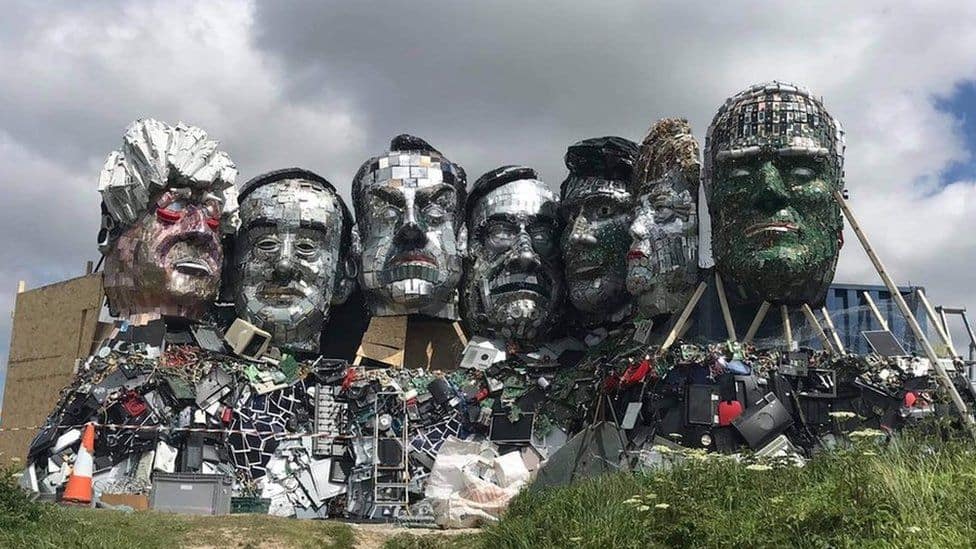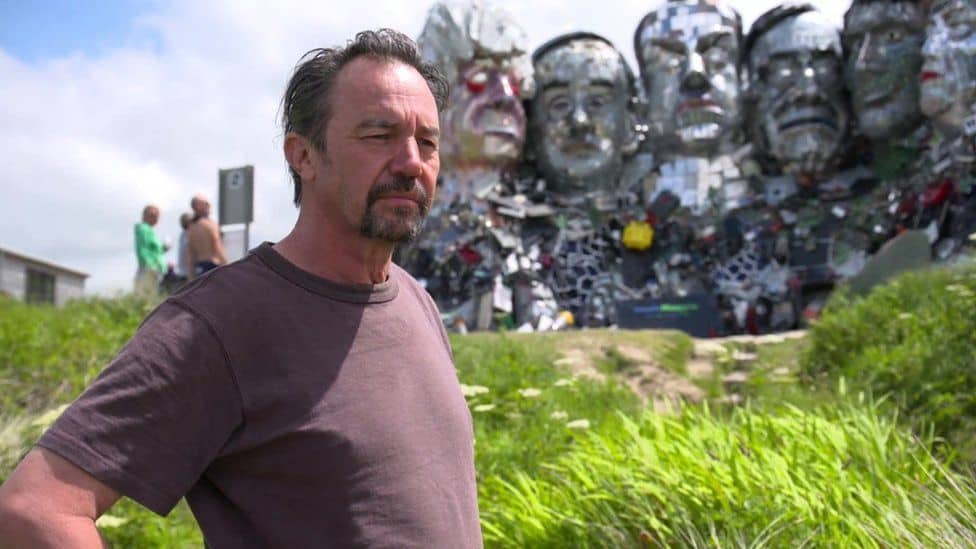‘Mount Recyclemore’ Sculpture Appears In Cornwall Of G7 Leaders Heads
A sculpture made entirely of e-waste has appeared in Carbis Bay, Cornwall, highlighting the growing problem electronic waste is having on the planet. The sculpture, styled similarly to Mount Rushmore, presents Boris Johnson, Yoshihide Suga, Emmanuel Macron, Mario Draghi, Justin Trudeau, Angela Merkel and Joe Biden; world leaders approaching a discussion on how we can build a sustainable future. The sculpture using e-waste was created by Joe Rush, who said he ‘hoped it would show they needed to be made more easily reusable or recyclable.’ Joe is said to be a ‘genius inventor, building his dreams with the significant waste of our post-industrial society’.
Joe Rush, Sculptor
The Threat E-Waste Has On The Planet
E-waste refers to electric and electronic items reaching the end of their consumer useability. Global e-waste volumes grew by 21% between 2014 and 2019, according to the United Nations, with the world discarding 53.6 million tons of e-waste in 2019. Much of the world’s e-waste ends up piling into landfills, and is known as the fastest growing waste stream in the UK. E-Waste accounts for 40% of the lead and 75% of heavy metals found in landfills, with these toxic chemicals being released whilst heating up. This process pollutes toxins into the air, atmosphere, soils, water and wildlife; having major effects on both our planet, human health and animal health. You may think that the toxins emitted will only have a significant impact on those who are near, but these particles are able to travel thousands of miles. When these particles get into the atmosphere they also add to the greenhouse effect that is speeding up global warming.
How You Can Help
When your computer, mobile phone, or any type of e-waste you own comes to the end of its life, this does not mean it cannot be recycled into something else. Another problem we are facing is the speed at which people are updating their electronics, without any problem with their previous items. This is contributing to the rate at which people are getting rid of their previous purchases; and often not disposed of sustainably. However, there are plenty of recycling facilities that deal with safe electronic disposal, and doing so will contribute to tackling the growing e-waste crisis the world is coming head to head with. When e-waste is recycled at the facilities, the product is shredded into tiny pieces, with appropriate segregation made for additional materials such as plastic. There are numerous items that e-waste can then be repurposed into, and introduced back into the market for further use.









